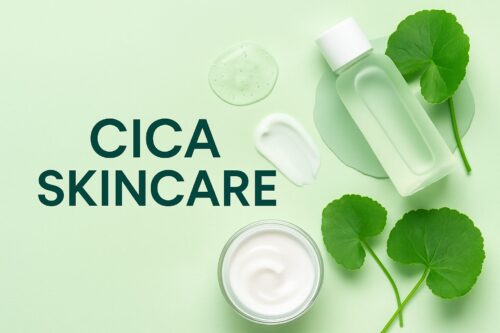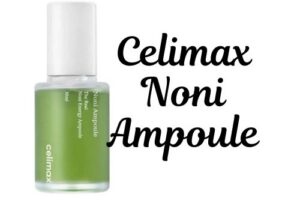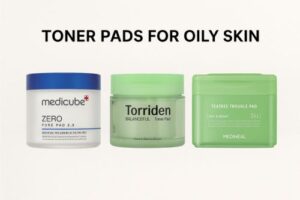Everything about [Vitamin C] for skincare
The Multitasking Benefits of Vitamin C for Skin Vitamin C, often known for its ability to fade dark spots and hyperpigmentation, is truly a skincare powerhouse with a wide range of benefits. While many associate it primarily with brightening and pigmentation correction, its antioxidant properties make it effective for anti-aging, improving skin texture, and protecting against environmental damage.
Niacinamide Vs Vitamin C Which One To Use?
Top Rated Vitamin C Serums
Pros of Vitamin C

Powerful Antioxidant Protection: Vitamin C is a superhero when it comes to fighting free radicals caused by UV exposure. It protects your skin from premature aging, reducing the risk of wrinkles, fine lines, and sagging. Its antioxidant power also helps soothe inflammation and defends your skin from damage.
Fades Dark Spots & Prevents Hyperpigmentation: Want to brighten your complexion? Vitamin C is your go-to. It not only fades existing dark spots by slowing melanin production but also prevents new ones from forming. The result? A more even, radiant skin tone.
Improves Texture & Minimizes Pores: Vitamin C helps regulate oil production, reducing the chances of clogged and enlarged pores. Plus, by boosting collagen production, it improves skin elasticity and firmness, which tightens and smoothens your skin.
Fights Acne & Scars: Vitamin C tackles acne in two powerful ways—by controlling sebum production and reducing inflammation. It also works to fade post-acne marks and redness, helping your skin heal faster for a clearer, more even look.
Boosts Collagen for Firmer Skin: Collagen is the foundation of firm, youthful skin, and Vitamin C is essential for its production. Not only does it help create new collagen, but it also protects the collagen you already have from damage.
Strengthens Your Skin Barrier: Vitamin C builds up your skin’s defenses, making it more resilient to environmental stressors. This stronger barrier means fewer chances of irritation, sensitivity, and breakouts.
Cons of Vitamin C

Light & Air Sensitivity: Vitamin C is highly unstable and can break down when exposed to light and air, which reduces its effectiveness. To get the most out of your Vitamin C products, store them in dark, airtight containers and use them quickly after opening.
Potential for Irritation: While Vitamin C can work wonders for many, it’s not always kind to sensitive skin. Higher concentrations may cause irritation, redness, or dryness, especially for those with reactive skin. To avoid this, it’s best to introduce it gradually and monitor how your skin reacts.
Challenging Ingredient Combinations: Vitamin C doesn’t always play well with other ingredients. When combined with retinol or certain acids, it can cause irritation or even reduce its potency. However, pairing it with hydrating ingredients like hyaluronic acid can help balance any potential irritation.
Slow Visible Results: Patience is key with Vitamin C. While it offers impressive benefits, you’ll need to use it consistently over time—sometimes weeks or even months—before you notice significant changes in skin tone or texture.
Ingesting vs. Applying Vitamin C: What’s the Difference?
Ingesting Vitamin C:
- Whole-Body Benefits: When you consume Vitamin C through fruits, vegetables, or supplements, it’s absorbed into your bloodstream and supports a range of bodily functions. It helps in collagen synthesis, which is crucial for healthy bones and tendons, neutralizes free radicals, supports your immune system, and helps prevent diseases.
- Depletion Factors: Factors like UV exposure and stress can deplete your body’s Vitamin C levels quickly, potentially leaving less available for your skin. Since the body can’t produce Vitamin C on its own, it’s important to maintain a consistent intake through diet or supplements.
Applying Vitamin C:
- Targeted Skincare Benefits: Applying Vitamin C directly to your skin allows it to work precisely where it’s needed. It can brighten your complexion, fade dark spots, and improve skin texture by boosting collagen production and providing antioxidant protection against environmental damage.
- Immediate Effects: Topical Vitamin C offers direct benefits to your skin and can produce visible improvements more quickly than ingesting it. It also helps counteract the damage from UV exposure and pollution, providing a targeted boost to your skincare routine.
Combining Vitamin C with Other Ingredients
| Vitamin C Combination | Benefits | Considerations |
|---|---|---|
| Vitamin B3 (Niacinamide) | Improves skin’s barrier function and enhances overall skin texture. | None specific; works well with Vitamin C. |
| Vitamin E | Boosts Vitamin C’s antioxidant effects, providing enhanced protection against environmental damage. | Suitable for most skin types. |
| Vitamin A (Retinol) | Amplifies anti-aging results by promoting collagen production and skin renewal. | Extra care needed; retinol is sensitive to sunlight, so use sunscreen. |
Incorporating Vitamin C into your skincare routine enhances and complements other treatments, making it a valuable addition for achieving comprehensive skin health.














3 comments